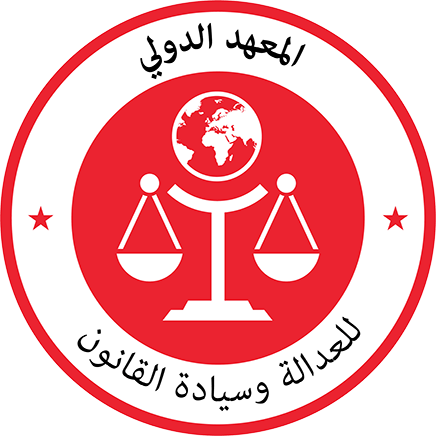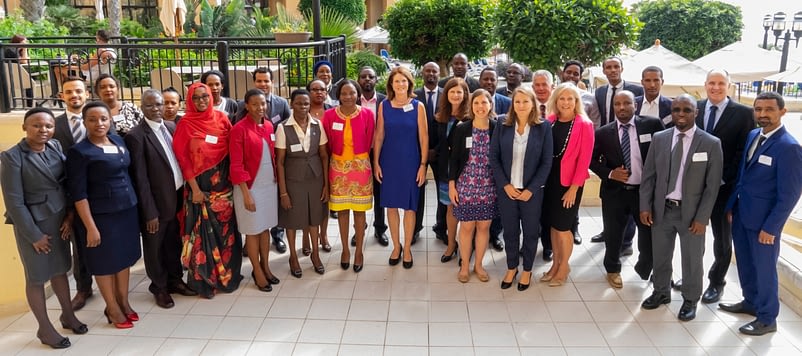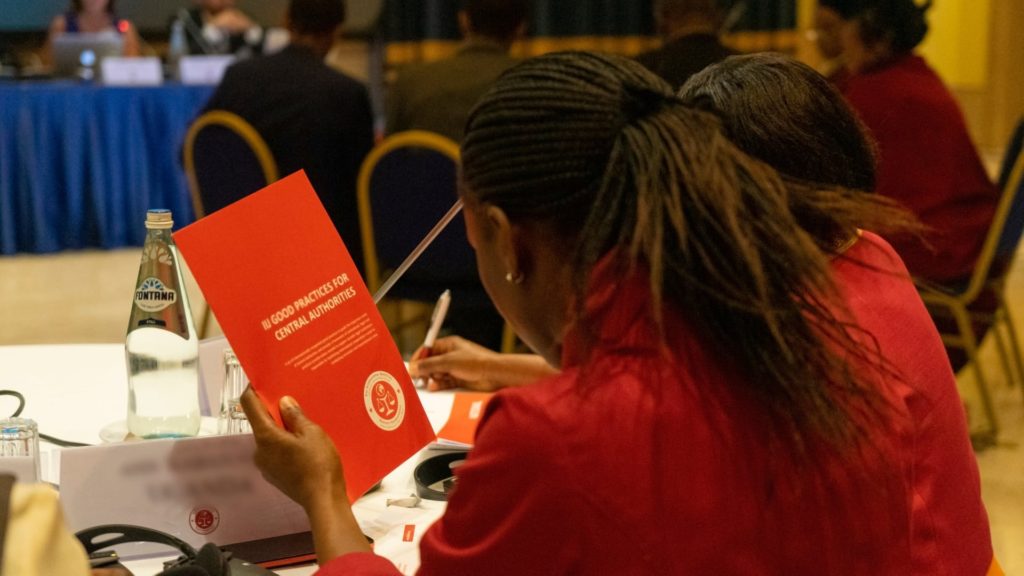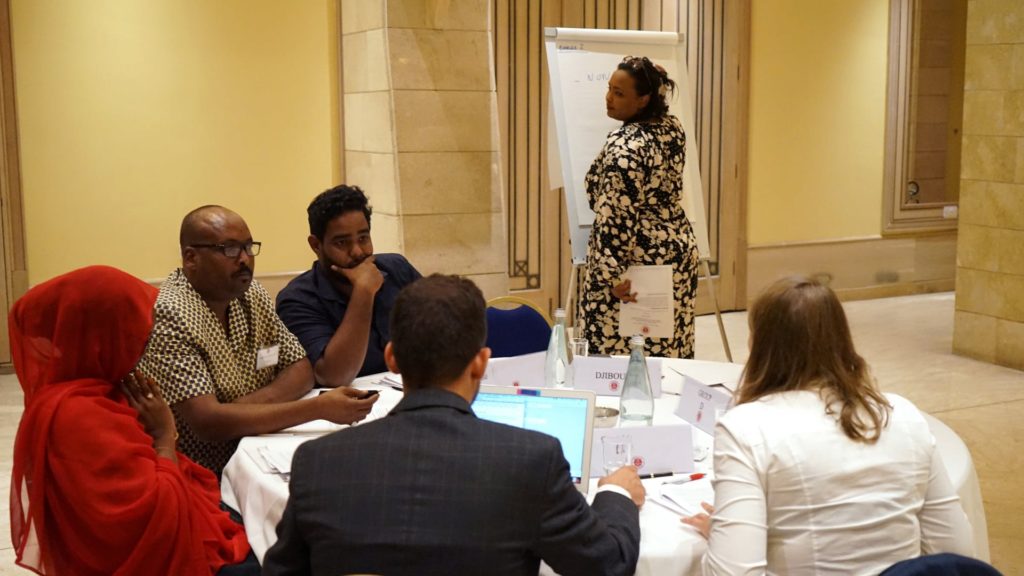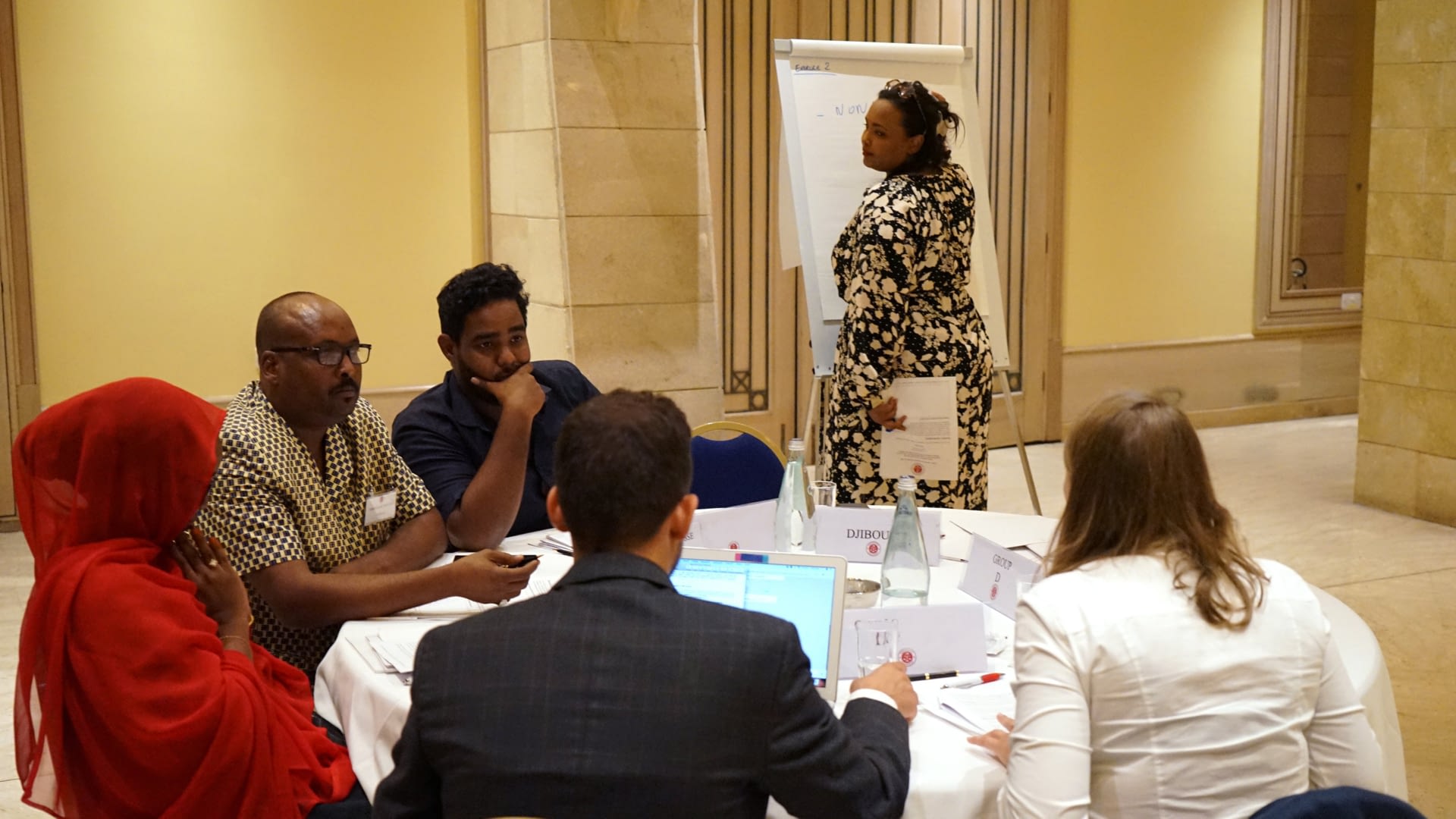
In September 2019, the IIJ brought together 28 judges, prosecutors and investigators from six countries across the East Africa region – Djibouti, Ethiopia, Kenya, Somalia, Tanzania, and Uganda along with practitioners from Australia, United States, INTERPOL, and the African Court on Human and Peoples’ Rights – for a workshop in Malta on Enhancing Regional and International Cooperation Between Criminal Justice Sector Stakeholders in Terrorism Cases.
The workshop, convened under the IIJ Global Central Authorities Initiative – one of eight IIJ Core Initiatives, highlighted the importance of establishing effective international judicial co-operation for prosecuting and adjudicating terrorism cases and encouraged participating countries to adopt legislation, policies and procedures consistent with the recommendations set out in the IIJ Good Practices for Central Authorities (hereafter IIJ Good Practices). Published in September 2018, the IIJ Good Practices (available in Arabic, English and French) serve as a guide for Central Authorities – the national entities responsible for mutual legal assistance (MLA) and extradition – and provide a framework of institutional, legal and practical considerations for establishing and supporting the work of these important institutions. The IIJ Good Practices elaborate on the GCTF's Rabat Memorandum on Good Practices for Effective Counterterrorism Practice in the Criminal Justice Sector, specifically Good Practice 9 on developing practices and procedures to encourage international cooperation in counterterrorism matters.
During the two-day workshop, experts from the Central Authorities of Australia and Tanzania shared their experiences in issuing, receiving and affording MLA and extradition requests. Together with a Kenyan investigator working at the Kenya-Ethiopia border, they presented real case studies illustrating the IIJ Good Practices in action, particularly the importance of promoting informal inter-state cooperation between law enforcement authorities and ensuring direct communication between Central Authorities.
Participants also had the opportunity to apply the IIJ Good Practices to a practical group fact-pattern exercise on international judicial cooperation. The exercise allowed them to discuss each country’s experience in obtaining information and evidence through law enforcement to law enforcement channels, the regional differences in legal standards when it comes to executing MLA and extradition requests, and ways to facilitate communication between Central Authorities to ensure that these requests are sufficient and comply with the terms of the applicable law or treaty.
Lastly, practitioners discussed challenges and obstacles to dealing with MLA and extradition requests that they had identified in the course of their investigations and prosecutions and during the practical exercise, and agreed on next steps for improving judicial co-operation in the East Africa region. During that session, a representative from INTERPOL briefed participants about how they can support these efforts by ensuring the timely and secure communication of MLA and extradition requests as well as reinforce police-to-police collaboration.
The event was the second of a series of interactive regional workshops for criminal justice sector stakeholders that the IIJ is convening under the IIJ Global Central Authorities Initiative (GCAI). The IIJ GCAI is supporting countries to meet calls from the international community to strengthen international judicial cooperation and the implementation of United Nations Security Council Resolutions 2322 (2016) and 2396 (2017). The next workshop in this series will bring together Central Authority stakeholders from West African countries for an event in Dakar, Senegal, from 15 to 16 January 2020.
For more information on this workshop or the IIJ Global Central Authorities Initiative, please contact Programme Manager Adrián Carbajo.
